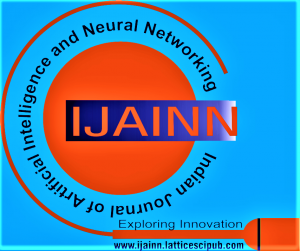![]()
Artificial Intelligence based Modern Approaches to Diagnose Alzheimer’s
Anubhav Wadhwa1, Rohan Pai2
1Rohan Pai, Shobhaben Pratapbhai Patel School of Pharmacy & Technology Management, SVKM’s NMIMS, V.L. Mehta Road, Vile Parle (W), Mumbai- 400056, India.
2Anubhav Wadhwa, Shobhaben Pratapbhai Patel School of Pharmacy & Technology Management, SVKM’s NMIMS, V.L. Mehta Road, Vile Parle (W), Mumbai- 400056, India.
Manuscript received on 20 January 2022 | Revised Manuscript received on 06 February 2022 | Manuscript Accepted on 15 February 2022 | Manuscript published on 28 February 2022 | PP: 1-14 | Volume-2 Issue-2, February 2022 | Retrieval Number: 100.1/ijainn.B1045022222 | DOI: 10.54105/ijainn.B1045.022222
Open Access | Ethics and Policies | Cite | Mendeley | Indexing and Abstracting
© The Authors. Published by Lattice Science Publication (LSP). This is an open access article under the CC-BY-NC-ND license (http://creativecommons.org/licenses/by-nc-nd/4.0/)
Abstract: In current times the level at which Alzheimer’s disease is rising is at an alarming rate. This rise points to the need for much more accurate and faster modes of diagnosis that the country wants. Artificial intelligence can resolve this issue as it uses extensive human surveys and real-time machine medicine monitors. The use of biomarkers that work on detecting unusual changes in the brain and the spectrochemical analysis of blood that works on the principle of vibrational spectroscopy Inclusive of Raman spectroscopy and FTIR cannot be used at a large scale. The underemployment of these methods includes the requirement of highly trained professionals and the heterogeneous nature of the human population. Therefore, the following approaches may be employed to overcome these benefits and give individuals optimal health solutions; Random Forest technique, etc., artificial neural network. When the talk is shifted towards treating Alzheimer’s, there is no such drug to treat it thoroughly. Symptomatic treatment options are available based on specific known receptors of Alzheimer’s etiology. Artificial intelligence has also taken a pioneering step to fill this void. With its help, we can identify a lot more receptors influenced upon Alzheimer’s advent. Once these newly found receptors are considered, better symptomatic treatment can be provided. Drug classes like NMDA receptor antagonists, Statins, and Antipsychotics are readily available options for managing disease, but all of these have a low safety index and other side effects like bleeding and psychosis. Newly re-purposed drugs like Acitretin and minocycline etc., have minimalistic side effects and high safety margin, making them a better choice in the diseased state. After Artificial intelligence has entered the market, the fields of diagnostics and therapeutics and taken the most advantage of it alongside administration and regulation, therefore, this AI is a boon in the medical industry as it can help manage medicine-based disease registries and population management when it comes to Alzheimer’s diagnosis and treatment.
Keywords: Artificial Intelligence, Alzheimer’s, Artificial Neural Network, In-Home Sensors, Drug Re-Purposing, Cholinergic And Amyloid Hypothesis.
Scope of the Article: Neural Networks
